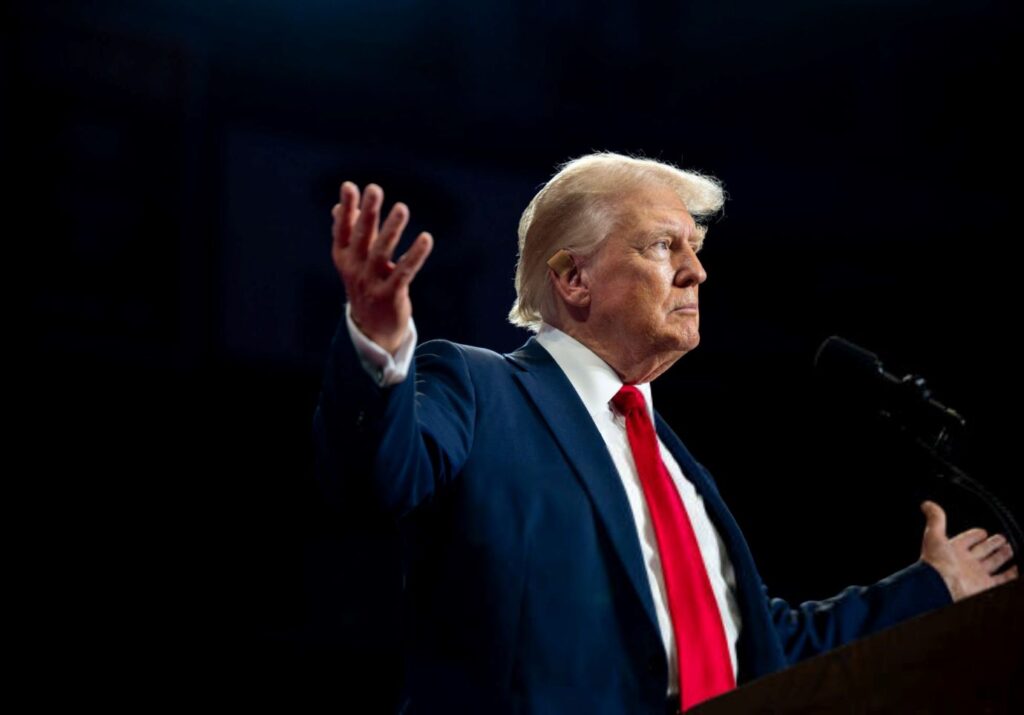At a rally in Wisconsin over the weekend, Donald Trump sunk to a new low, attacking Kamala Harris in a way that should give every American pause.
Referring to Harris as “mentally disabled,” Trump once more showed his willingness to rely on discriminatory and harmful language to score cheap points that aren’t just problematic but seriously dangerous, especially when coming from someone vying to be the leader of one of the most powerful nations in the world.
Trump’s casual ability to spout bigoted and ableist language reveals not only his lack of empathy but also his disregard for the dignity of millions of Americans who live with disabilities. According to the CDC, around 26 per cent of Americans navigate life with some form of disability. In this way, he’s not only attacking Kamala Harris—he’s insulting a significant percentage of voters.
The presidency requires a leader who can represent all citizens, not just those who look, think, or behave like them. This latest example from Trump is part of a broader pattern of exclusionary language that raises serious concerns about his MO. If a leader so freely degrades marginalised groups, can they truly be trusted to advocate for policies that support the most vulnerable?
We of course know the answer, but it’s still worth the question.
Throughout his political career, Trump has continually deployed language that divides, whether it’s racist dog whistles, misogynistic jabs, or xenophobic slurs. We’ve heard him refer to Mexicans as “rapists,” label African nations as “shithole countries,” and now, casually dismiss Harris as mentally disabled. These are not isolated incidents; they reflect an ideology that thrives on creating an “us vs. them” dynamic.
Trump’s divisive rhetoric is ultimately a calculated strategy to embolden a base that responds to anger, fear, and hatred. For example, in 2016, Trump’s infamous mocking of a disabled reporter became a viral moment. It was applauded by some supporters as evidence of his “anti-woke” style.
The fact that some Republicans have tried to distance themselves from Trump’s recent attacks, urging him to focus on issues like the economy or immigration says a lot. Senator Lindsey Graham suggested that Trump should prosecute the case against Harris based on her policies, not her person, calling them “crazy liberal.” Other Republicans, such as former Maryland governor Larry Hogan, condemned Trump’s repeated false claims about Harris’s racial identity and mental competence. Hogan called Trump’s words “insulting,” not just to Harris but to those living with mental disabilities.
Yet, many in Trump’s camp have somehow refrained from full condemnation. Representative Tom Emmer, for instance, dodged direct criticism of Trump’s remarks in a recent interview, choosing instead to focus on Harris’s policy positions. This hesitation highlights how deeply ingrained his brand of politics has become within certain factions of the Republican Party.
The question Americans must ask themselves ahead of November, is whether someone who seems to revel in mocking others for their gender, race, or disabilities can be trusted to lead a diverse nation?
In contrast to Trump’s reliance on derogatory, degrading, below-the-belt tactics, Harris has made it clear that her focus remains on policy and the American people. When asked about Trump’s recent slur, she defined it as “the same old show” and slammed his lack of a concrete plan for the country.
And that’s the crux of the issue. While Trump continues to escalate his personal vendettas, Americans are left wondering where his vision for the future really lies.
Trump’s words and actions repeatedly show that he is unwilling to rise to the challenge of leading with vision. Instead, he’s chosen a path of divisiveness and disdain—traits that are antithetical to true leadership. The more Republicans like Hogan push back against Trump’s rhetoric, the clearer it becomes that his brand of politics is not only harmful but increasingly out of step with where America needs to go. Whether the country heeds that warning? We’ll find out soon.

